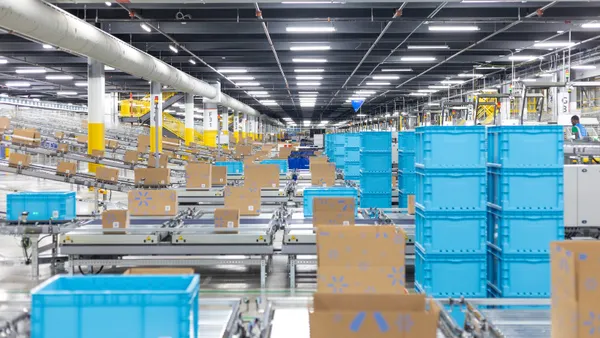Tariffs: A test of supply chain resiliency
Faced with a June 1 deadline to officially impose the polarizing steel tariffs, President Donald Trump decided to nix the exemptions for Canada and Mexico. The 25% tariff on imported steel and 10% tariff on imported aluminum went into effect at midnight last night.
The news comes right after the U.S. announced 25% tariffs on Chinese imports, the full list of which will be released June 15.
The Reaction: No matter how justifiable the reasoning for tariffs is (or isn't), the U.S. should expect a global response. Companies who have adopted a "wait and see" attitude with regard to Trump's tariffs will have a harder time reshuffling their supply chains than those who have already taken preemptive action to protect profit margins.
It's worth noting some have argued the impact of tariffs on the U.S. economy is likely to be minimal. Those with more nimble resiliency plans in place will bounce back quickly, but the stress of rearranging global supply chains is substantial and costly.
Are ELDs allowing truck drivers to pocket more money?
According to a FreightWaves report, the electronic logging device (ELD) mandate is pushing truck drivers to be savvier about their driving hours, leading many to log more hours and actually earn more money. FreightWaves' analysis shows drivers logging an average of 30 minutes more per day, making $54 more per day per driver.
The Reaction: Because lack of ideal compensation is often attributed to the high driver turnover rate, the ELD — while unpopular among drivers — may play a role in improving driver pay. In addition, logging more hours means goods are moving faster through the supply chain, which leads to greater efficiencies, lower costs, higher profit margin, and therefore a proof of concept for better driver compensation.
Based on FreightWaves' analysis, it seems like a win-win, even amid the uncertainty.
GM CEO: AVs are the next big thing
In an interview with Fortune, General Motors CEO Mary Barra said autonomous vehicles (AVs) "are coming." She thinks with artificial intelligence (AI) and machine learning, AVs will be perfected.
She isn't daunted by the recent driverless car crashes and the fact that two U.S. senators have initiated their own probe into those crashes leads her to believe AVs are the next big thing to hit the global auto industry.
The Reaction: Barra's attitude is in tune with current auto industry sentiment regarding AVs, but the real question here is not whether a big U.S. automaker thinks AVs are the future, but whether federal regulators are on board with that future.
Due to mishaps with driverless cars and consumers not using semi-autonomous cars properly, some feds are more skeptical than ever about the technology. Ultimately, it doesn't matter how much a company is committed to new tech; what matters is whether regulators are willing to move forward.
In case you missed it
Bloomberg published a new report on electric vehicles (EVs) measuring prices, sales and government support of EV initiatives around the world.
The Blockchain in Transport Alliance (BiTA) announced the launch of five think tanks — focusing on risk management, finance/business administration, operations/asset utilization, driver marketplace and supply chain marketplace — to help develop blockchain standards, which FreightWaves reported should be announced by the end of the year.
In an effort to reform and improve the process of allowing immigrant entrepreneurs temporary visas in the U.S. to run U.S. companies, President Trump rescinded the International Entrepreneur Rule. While a revamp is expected, there's no word on what that will look like.
Looking ahead
Following up on the threat to impose tariffs on U.S. foreign vehicle imports, the Trump administration scheduled public hearings July 19-20 to examine the effect of auto imports on the U.S. auto industry.












